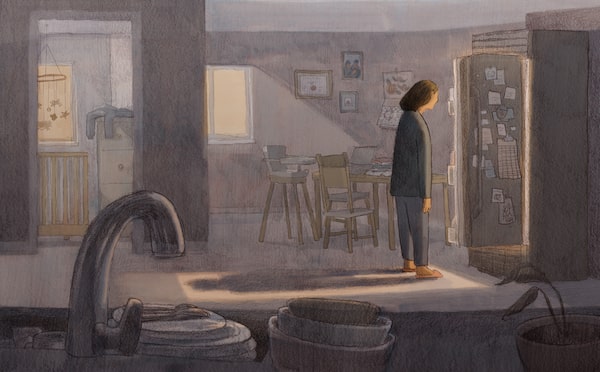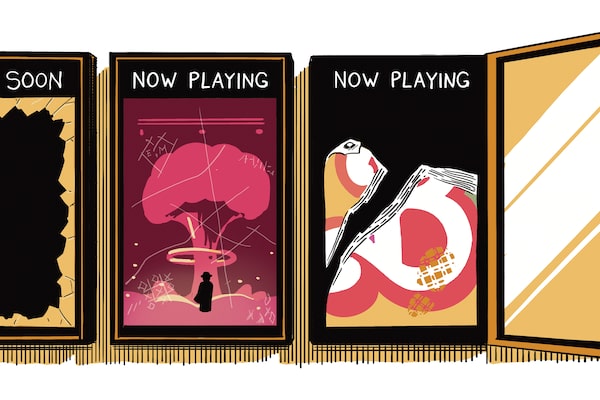Good morning, and welcome to the weekend.
Grab your cup of coffee or tea, and sit down with a selection of this week’s great reads from The Globe. In this issue, Ian Urbina offers an in-depth look into an investigation led by non-profit journalism organization Outlaw Ocean Project to uncover the scope of North Korean forced labour in seafood processing plants providing seafood to Canadian distributors.
Urbina, founder and director of the Outlaw Ocean Project, sought to expose the labour program run by various entities in the North Korean government, including a secretive agency called Room 39, which oversees activities such as money laundering and cyberattacks, and which funds the country’s nuclear- and ballistic-missile programs, according to reports from Ritsumei University and the Committee for Human Rights in North Korea.
Sean Silcoff reports on the biotech boom happening in Vancouver, as one of Canada’s largest cities looks to establish itself as a major player in the global pharmaceutical industry.
And Ann Hui discusses the dangers of chronically burnt-out, overworked and exhausted Millennial women.
If you’re reading this on the web, or it was forwarded to you from someone else, you can sign up for Great Reads and more than 20 other Globe newsletters on our newsletter sign-up page. If you have questions or feedback, drop us a line at greatreads@globeandmail.com.

Ian Urbina of the Outlaw Ocean Project watches a Chinese fishing fleet through binoculars while on a ship between North and South Korea in May, 2019.Fábio Nascimento/The Outlaw Ocean Project
Like many others throughout the country, Chinese seafood processing company Donggang Jinhui Food relies on North Korean workers, who are sent by their government to work in Chinese factories in conditions of captivity. Using North Korean labour is a violation of United Nations sanctions, but much of the seafood processed at the Chinese plants still ends up in the U.S. and Canada, a reality largely hidden from consumers. This year, a team of researchers with the Outlaw Ocean Project, a non-profit journalism organization based in Washington, set out to document the use of North Korean workers in the Chinese seafood industry. Ian Urbina takes us through their in-depth investigation.
Biotech boom: Vancouver looks to join the global big leagues of modern medicine
Carl Hansen, CEO of AbCellera on the roof of his office and lab in Vancouver, B.C., Canada.Marlin Olynyk�/The Globe and Mail
Two decades ago, Vancouver had a burgeoning life sciences scene led by QLT Inc. and Angiotech Pharmaceuticals Inc. By the 2010s both had foundered and the sector flatlined. Now a group of bold companies led by AbCellera are determined to shock the local ecosystem back to life, even if they must lay the bricks themselves. They are bent on establishing Vancouver, and in turn Canada, as a major player in the US$1.5-trillion pharmaceutical industry, spurning our long-standing reputation as a country of top-notch medical researchers whose breakthroughs end up being commercialized elsewhere.
Exhausted, burnt-out and disillusioned: Why millennial women are not okay

The Globe and Mail
Some call it “burn out.” Others “quiet quitting.” Everywhere around Ann Hui, smart, talented, hard-working women suddenly seem to be falling apart. From all of them, she heard echoes of the same sentiment: young women are not okay. And whether or not you’re one of them, you likely rely on them. Economically, we need women in the workforce. Young women are workers, managers, and most notably, the ones we rely on as caregivers. Young women are – have always been – the ones we depend upon to shoulder our collective burden. Hui writes that as women burn out, take a step back, or opt out entirely, it’s a problem that affects us all.
Opinion: Depriving women of their rights should be a crime against humanity

Samira Moyheddin last visited her birth country of Iran in August, 1999. She wouldn’t dare go back now. Without wearing the mandatory veil in Iran, women are completely shut out of civic life. They have no right to work, to education, to social services, or to health care. Now, almost 25 years after her trip to Iran, a growing movement is under way to make gender apartheid recognized as a crime against humanity. Moyheddin urges Canada to follow suit.
Oscars and the apocalypse: Why Barbenheimer might mark the last great gasp of Hollywood

Illustration by Steven P Hughes
Thanks to the cultural phenomenon of Barbenheimer, this year’s Oscars stand to go down as the most box-office-friendly Academy Awards in a generation, perhaps stretching back to when Titanic triumphed in 1998. But while the Oscars will shine a big, burning spotlight on the two biggest films of 2023 – films that proved the magic of moviegoing can never be replaced, ever! – it will be doing so as Hollywood faces several extinction-level events, from the streaming wars to strike fallout. Barry Hertz asks: Will Sunday go down as the night that saved Hollywood, or the last great gasp of an industry on fire?
- READ MORE: Red Carpet style from icon Maria Callas
‘This can go the distance’: How the tiny Canadian documentary To Kill a Tiger made it to the Oscars
Nisha Pahuja, producer, writer and director of the NFB co-production documentary "To Kill A Tiger," is shown in a handout photo.Mrinal Desai/The Canadian Press
Writer-director Nisha Pahuja, whose work centres on gender equity and justice, always knew To Kill a Tiger was a tough sell: subtitled, in Hindi, about child rape. But with the support of the National Film Board, Pahuja spent three years shooting and another three years editing, because she knew she had something special. How did the Canadian documentary To Kill a Tiger make it to the Oscars on Sunday night? Johanna Schneller writes about a subject told well, indefatigable passion and non-stop fundraising.
After years of encouraging people to laugh at the sport, Curling Canada gets serious

Scene from a Curling Canada advertisement featuring Brad Gushue.Curling Canada
Curling’s attempt to rebrand away from the boozy, funny image the sport has carried on for years – and Curling Canada has finally had enough. The guardians of curling in the country would very much like people to stop laughing at the sport, and they’re getting serious with a new TV spot which features the sport’s top players looking very stoic as they ply their trades.
Matt Johnson’s BlackBerry broke the Canadian Screen Awards record with 17 nominations this week. Which Canadian film previously held the title for the most nominations?
a. Clement Virgo’s Brother
b. Anne-Marie Gélinas’s Beans
c. Shasha Nakhai’s Scarborough
d. Marc Daigle’s Antigone